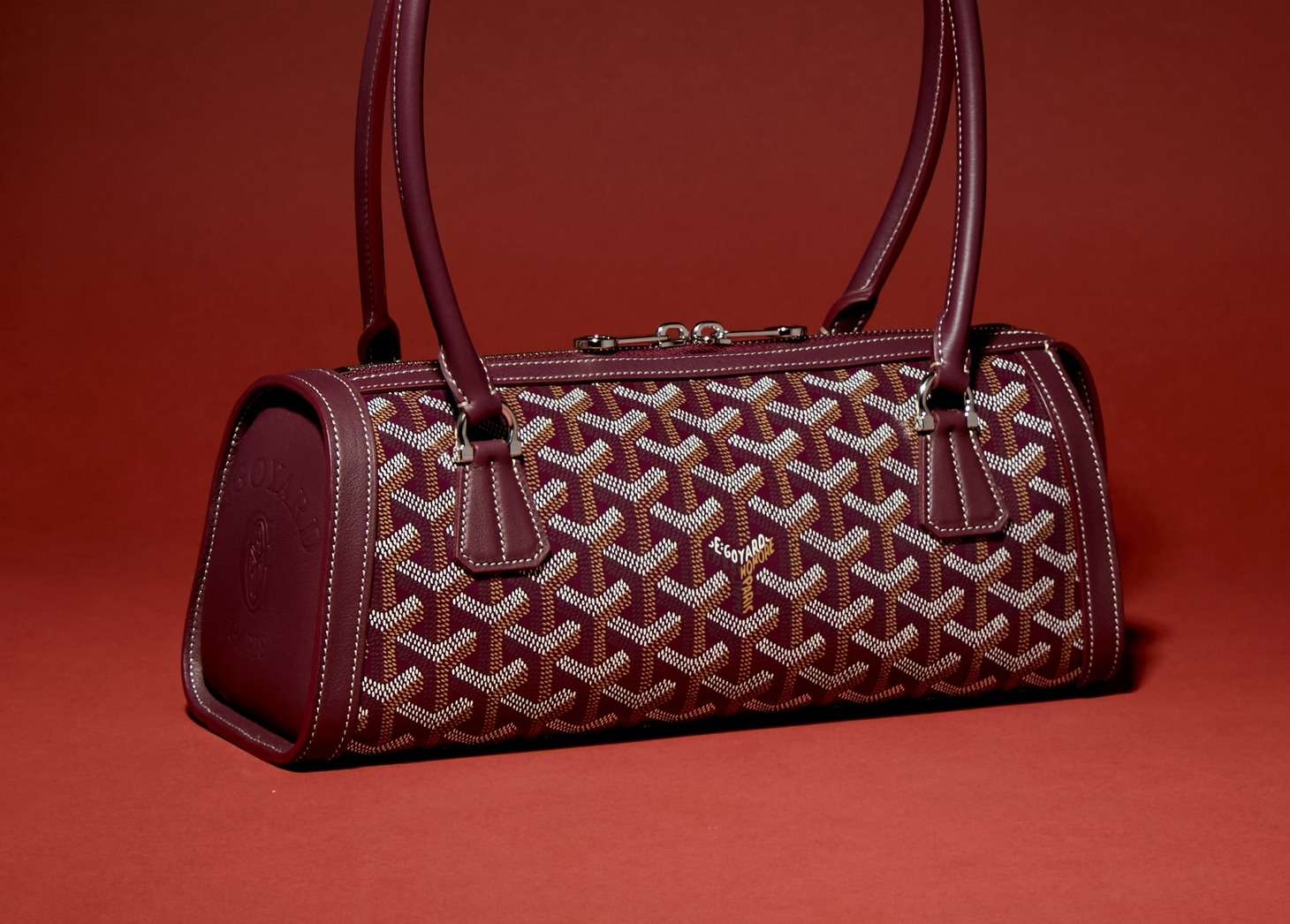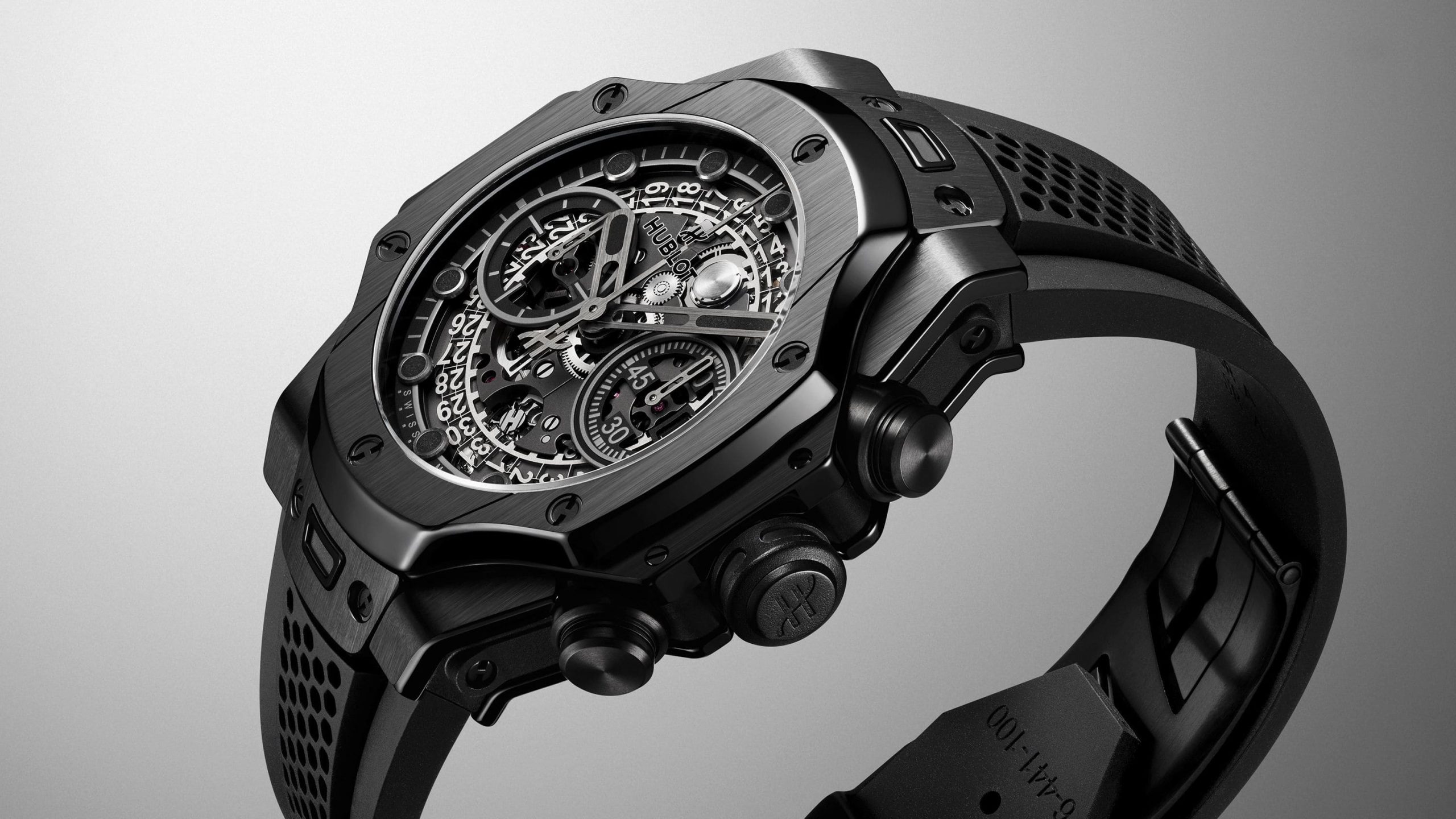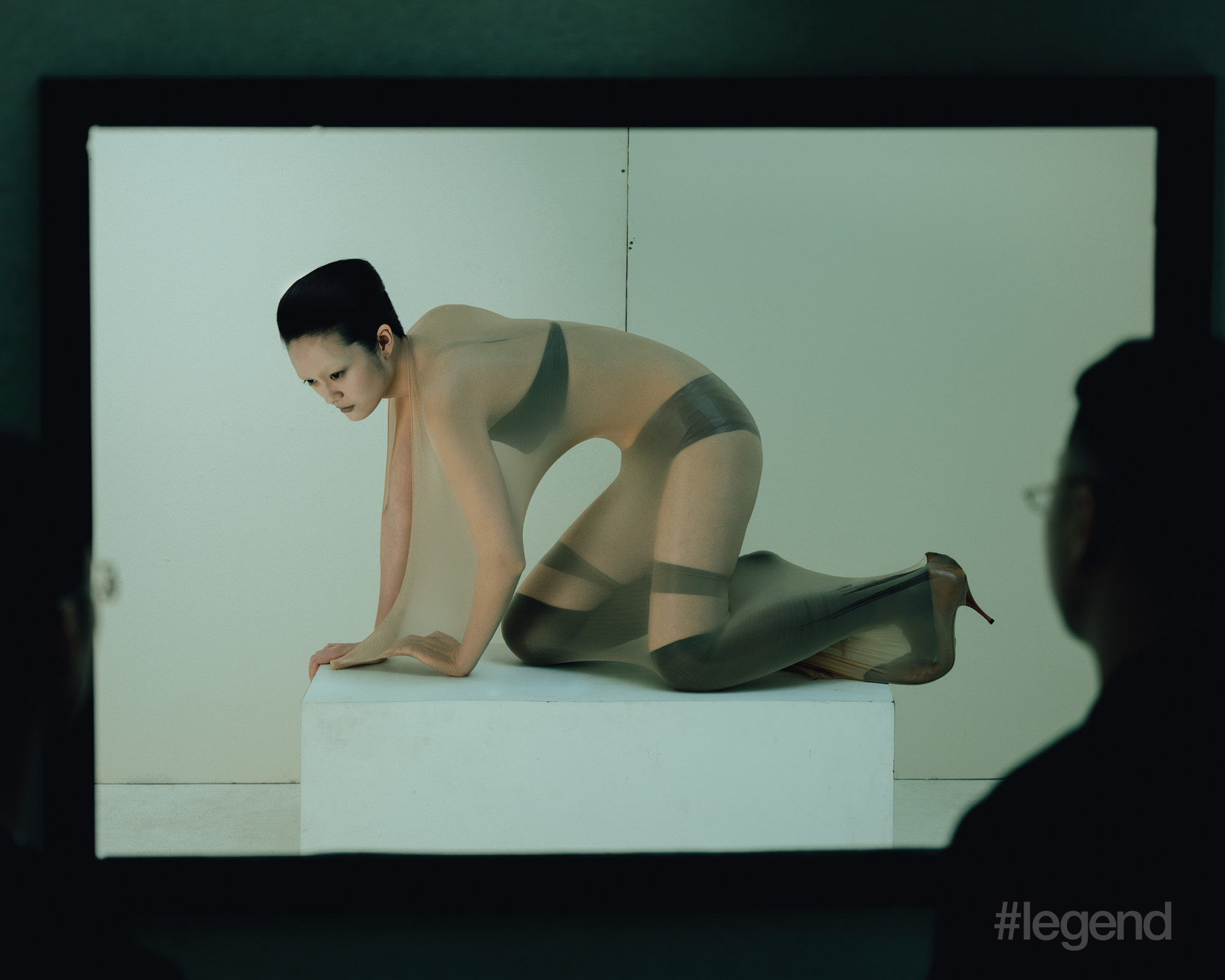
Louis Vuitton’s vice-president for watches and jewellery, Hamdi Chatti, has prodigious experience in watchmaking. He holds a first in micro-technology engineering and a master’s degree in horology from the University of Neuchâtel in Switzerland, and a marketing management degree from the ESSEC Business School in Paris. He worked for Piaget, Harry Winston and Montblanc before signing on with Louis Vuitton in 2010. Chatti and #legend sat down in the comfort of the Louis Vuitton shop in the Landmark in Central to speak about the Louis Vuitton Tambour Moon and Escale Blue watch collections.
Tell us about your mission to inspire and delight with Louis Vuitton watches.
Louis Vuitton started its watch category 15 years ago. This year is the 15th anniversary of the Tambour. The challenge for Vuitton is how to deliver the seriousness of the watch industry and simultaneously the spirit of Louis Vuitton. I came to Louis Vuitton for these two reasons: first, because I come from the watch industry and, second, because Vuitton is an amazing opportunity to do things differently from traditional Swiss watchmakers. I didn’t bring the passion or the excitement to this company. It’s a gift I got from them. We had to twist things the right way. Since then, we have built our factory with watchmakers. It provides creative independence. If you have an idea like the new Escale Blue watch, and you go to a supplier in Switzerland and you try to make it happen, it will never happen. They say, “You know this is a mistake. Let me tell you why.” That’s their attitude. Not all new ideas are always good ideas but sometimes you need to try things to find out. By doing so, you find good solutions. That’s why we have our own factory.
You toned down the colours of the Escale to blue. Why?
I still wear the coloured one. It’s my favourite. But the reason is a simple one: some people told me that they think it was overwhelming, too much, too busy. I don’t think it takes away the spirit of the watch by toning down the colour.
The woman buyer: how do you design for her? What dictates the codes?
Sometimes we spend too much time thinking about how complex things can be. I think our clients love our brand. If we manage to have a design shape for the case that is elegant but a bit provocative, and brand it – in spirit and not just in logo or a monogram – if we do it right, they will like it. If, on top, you have a little complication, then why not? But not the other way round. For example, if you buy a car, you don’t buy a car because you have the 500 horsepower engine. You buy a car because, first, you believe it’s beautiful and has a great look and it’s a good brand that tells you the quality must be okay. Then you drive it. If it’s an ugly car with 500 horsepower, you don’t buy it. For women, I think it’s the same.
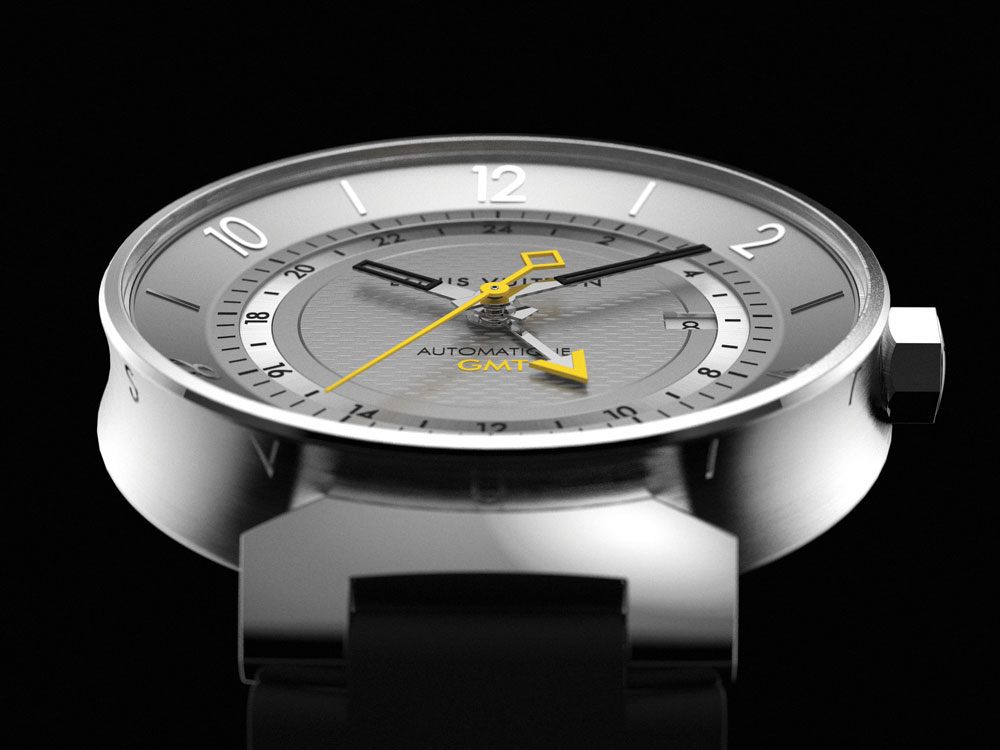
What has surprised you most about this industry that you couldn’t have predicted seven years ago?
If you look at the history of watchmaking, from the late 1990s, the industry was booming with new creative watchmakers and independent watchmakers like Richard Mille. Traditional brands stayed traditional and I was waiting for something to happen but nothing did. That surprised me. Everything else has changed, for example, the technology industry, the car industry. Only we, the watchmaking industry, have stayed exactly the same.
Two complementary mindsets cause that, tradition and fear of change.
True. You could say my surprise is how have we managed not to change.
How much light have you let in at Louis Vuitton?
It’s interesting. We ask traditional watchmakers to execute new ideas. This is how we run our new products. We ask them to be the ones who lead, especially with this kind of thing. We push them. We say, “we want, we want”. And they make it happen. But they make it happen in a way that makes sense as watchmakers because it’s embedded in them. They do it right. But you still have to push the limits. You can’t push the limits by using outsiders.
Digital watches and smart watches. What’s your feeling about them?
Big companies like ours need to ask, “Does it make sense?” Whether we do it or not, I don’t know. If you bring something new to the market, whether it will last or not is a good question because, even if it does not last, it can still change a lot of things in the industry. We need to follow this process, to understand it, to work it out, to try to twist it in our way and see whether it does make sense for us. If it does make sense for us, it’s a good idea. If it doesn’t make sense, we will have learned something. I’m not scared about it but I’m not excited about it, either.
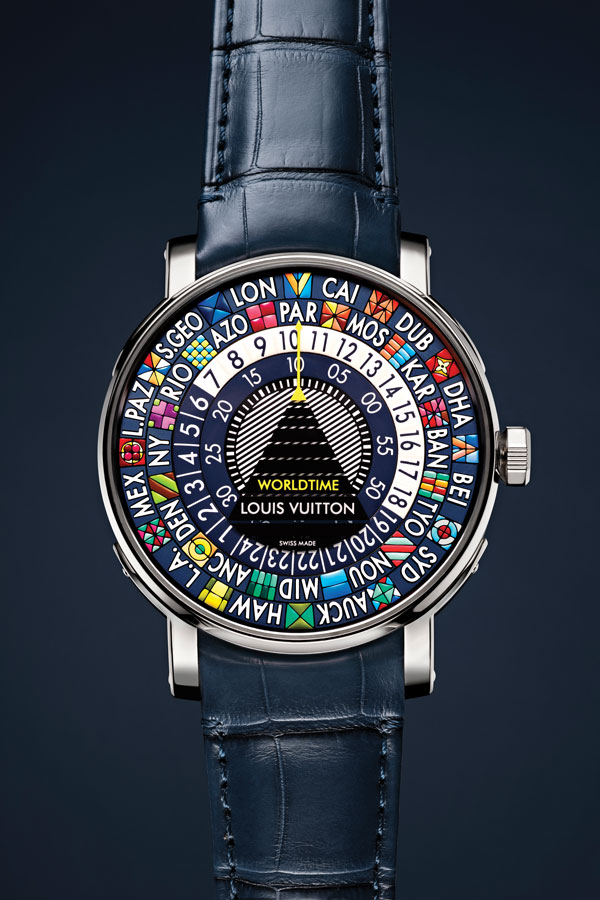
What watch does Elon Musk wear?
I don’t know. He’s a creative mind and rule-breaker. We were discussing him at lunch. People think that his main objective is to develop a new car industry. No, he wants to develop a new energy source and he’s using the car as the entry point. It’s fantastic. He said the chance of succeeding with cars is 10 per cent. He’s got other things on his mind. He wants energy. He wants to replace gas for cars, for houses, for everything.
Is it hard to find watchmakers with innovative attitudes?
With Vuitton, we are building up independent watchmakers in-house. One thing about watchmakers: if you are a good watchmaker, you are very smart. The bigger problem is whether you are open or not. The good watchmakers are smart people but they are sometimes not open. We try to have on board the good, open watchmakers. You then rely on them because they can bring something great. We have made a watch for US$50,000 but with limited reach because it was expensive. A large audience means you divide the price by 10. We had discussions and the watchmaker said to me, “What are you willing to spend on it?” I said, “Ten times less.” And he said, “For that, I don’t even get out of bed or take up my pencil to think.” He came back the day after and said, “You know what? I have an idea but it will take one year.” After three months he found the way. We’re selling this model for US$5,000.
What’s the most memorable or surprising compliment that anybody has paid you?
When you hire a gifted watchmaker that has worked 30 years and they say, “We never thought we could get so excited,” that’s a huge compliment.
This story originally ran in the June 2017 issue of #legend.



